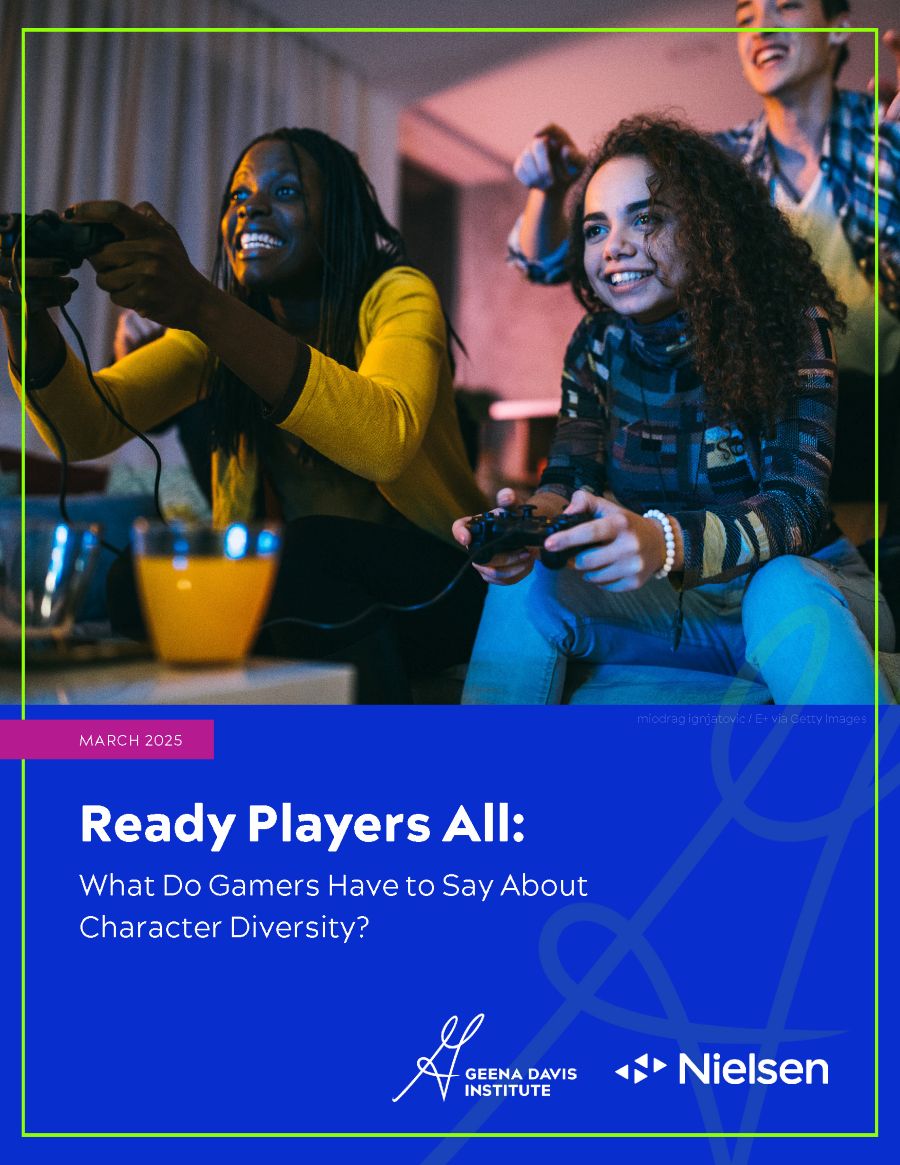
Today’s video game audience is diverse, but the character composition of the most popular game titles does not reflect that reality. We were curious to learn: Are players concerned about this disparity? In June 2024, the Geena Davis Institute partnered with Nielsen through its Data for Good® initiative to assess player sentiment on diversity in video game characters via Nielsen’s monthly Video Game Tracker of U.S. and U.K. players.
Key Findings
The majority of gamers want to see more diversity in video game characters.
- Sixty-four percent of U.S. and U.K. respondents agree with the statement “I am more likely to play a video game if it has characters who are more diverse than the characters I usually see in video games.” Only 12% disagree. The rest neither agrees nor disagrees.
- Sixty-two percent of respondents agree with the statement “I am more likely to play a video game if the playable characters are diverse.’’ Only 9% disagree. The rest neither agrees nor disagrees.
- Sixty-three percent of respondents agree with the statement “I am more likely to play a video game if it includes women as playable characters.” Among men, it is 60%, and among women, it is 68%.
- Among gamers ages 18 to 24, 72% agree with the statement “I am more likely to play a video game if it includes women as playable characters.” Video games make up 19% of the monthly entertainment spending for this age group.
- Almost half of respondents (47%) agree with the statement “I am less likely to play a video game that uses gender stereotypes.”
- This finding suggests that many gamers are dissatisfied with common gender stereotypes in games. Bryter’s 2023 Women Gamers Report found that 68% of respondents felt female characters were often oversexualized, and the Institute’s analysis of 684 15-minute segments from gameplay sessions with the top-20 Twitch streamers in October 2020 found that female characters were nearly 13 times more likely than male characters to be shown in revealing clothing (25% compared with 2%).
Gamers value exciting and engaging games, so a lens of diversity and inclusion needs to be an organic part of a game’s development—not a tacked-on component that sacrifices entertainment value or consumer appeal. With our free, research-driven digital resource, the GDI Playbook, the Geena Davis Institute offers guidance on how to address these findings by integrating awareness of stereotypes, bias, media effects, and self-reflection into the game development process. The resource aims to empower game creators to craft game narratives and characters that reflect cultural awareness and inclusivity. Check it out at GDIPlaybook.org.
How to cite this study:
GDI. (2025). Ready Players All: What Do Gamers Have to Say About Character Diversity? The Geena Davis Institute.
See our previous reports and resources on gaming below:
